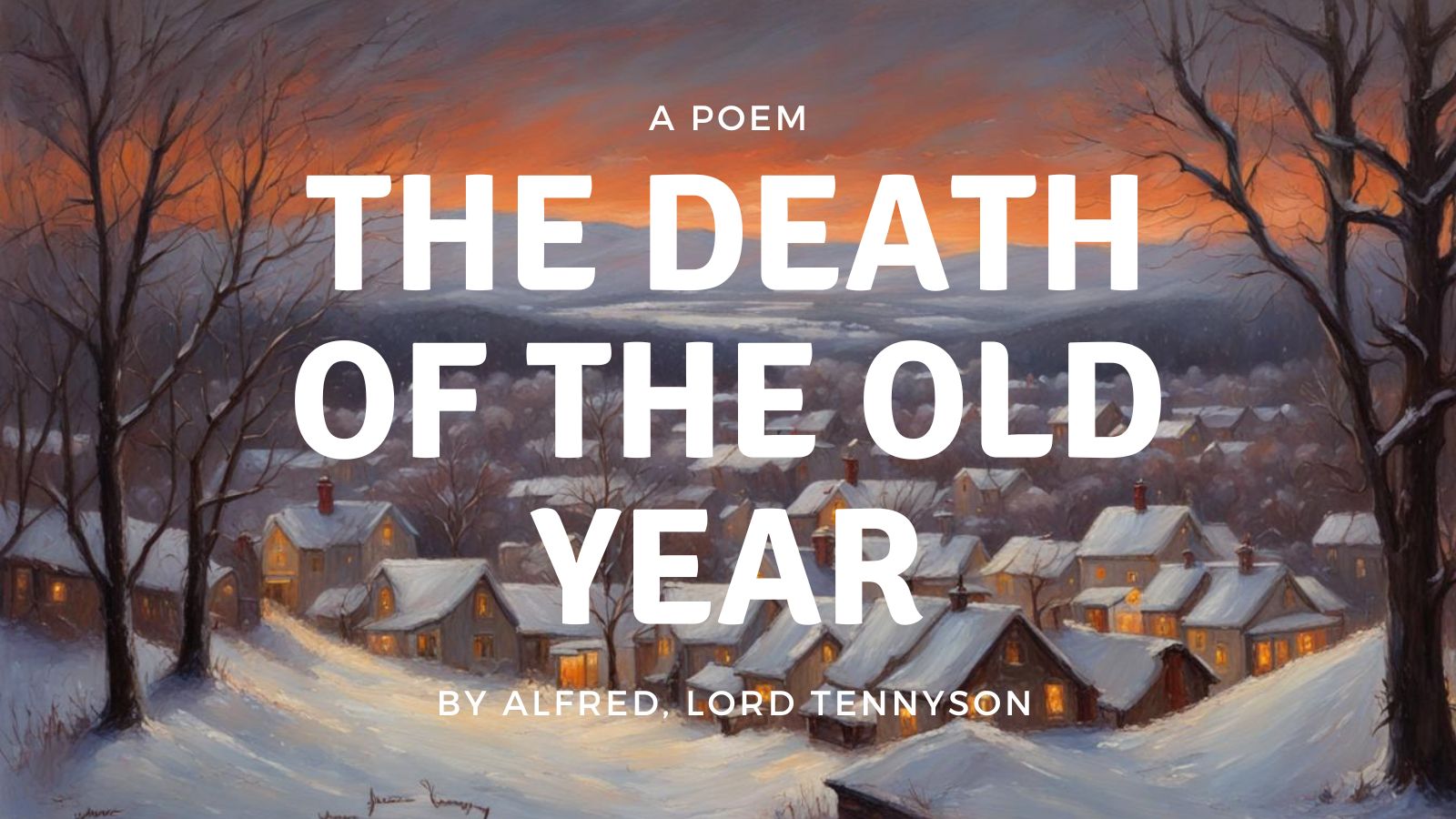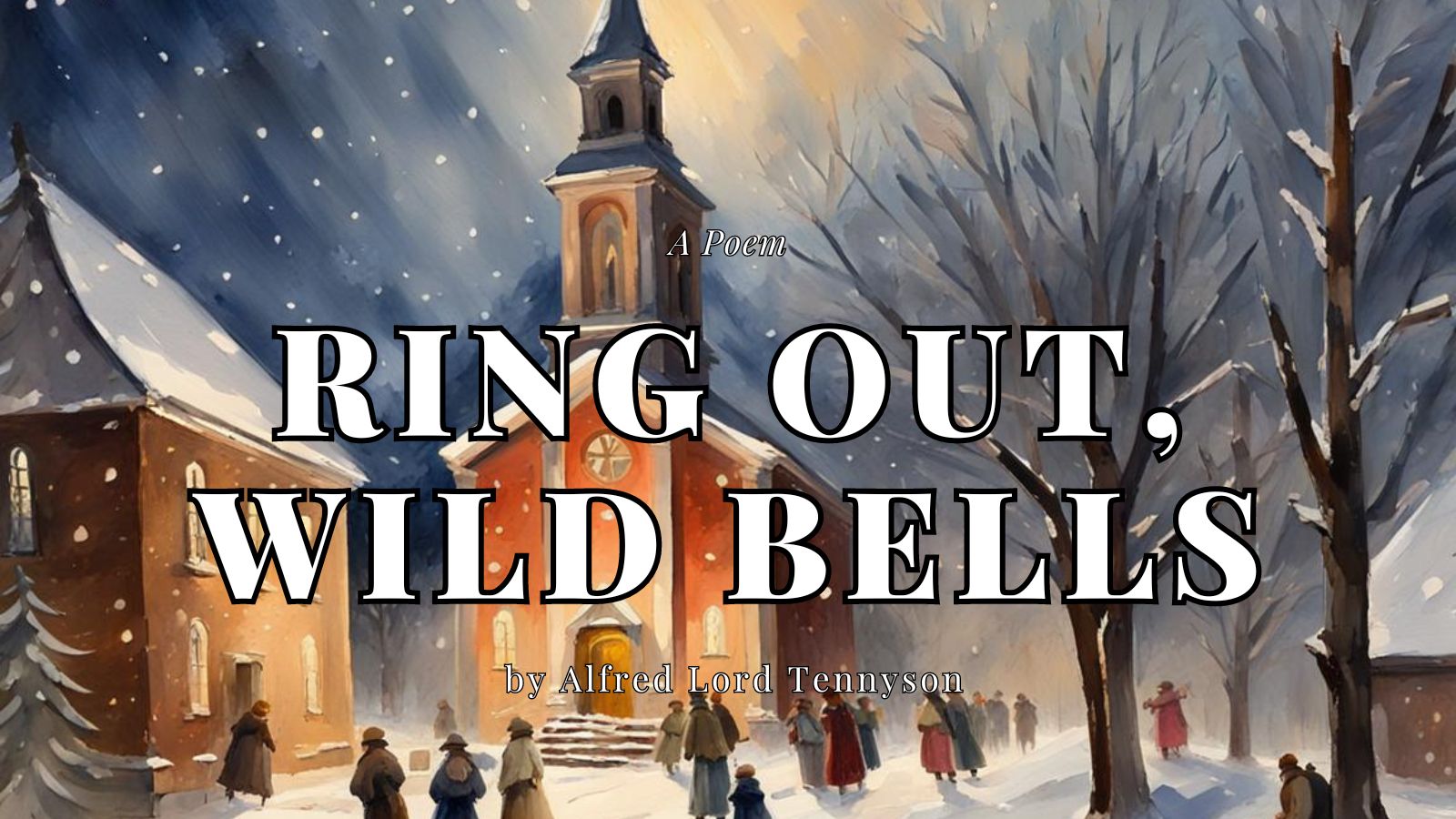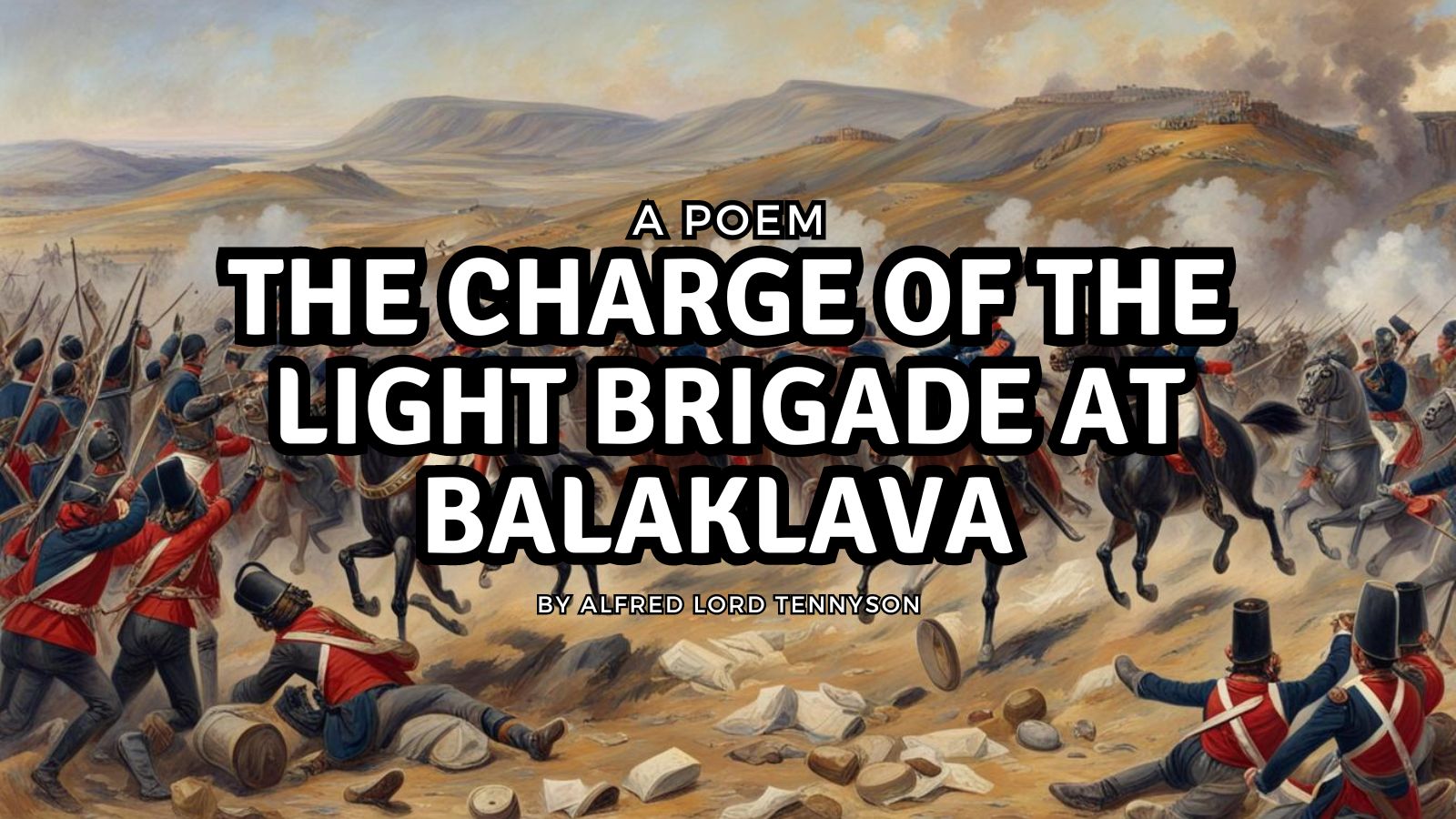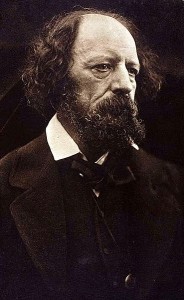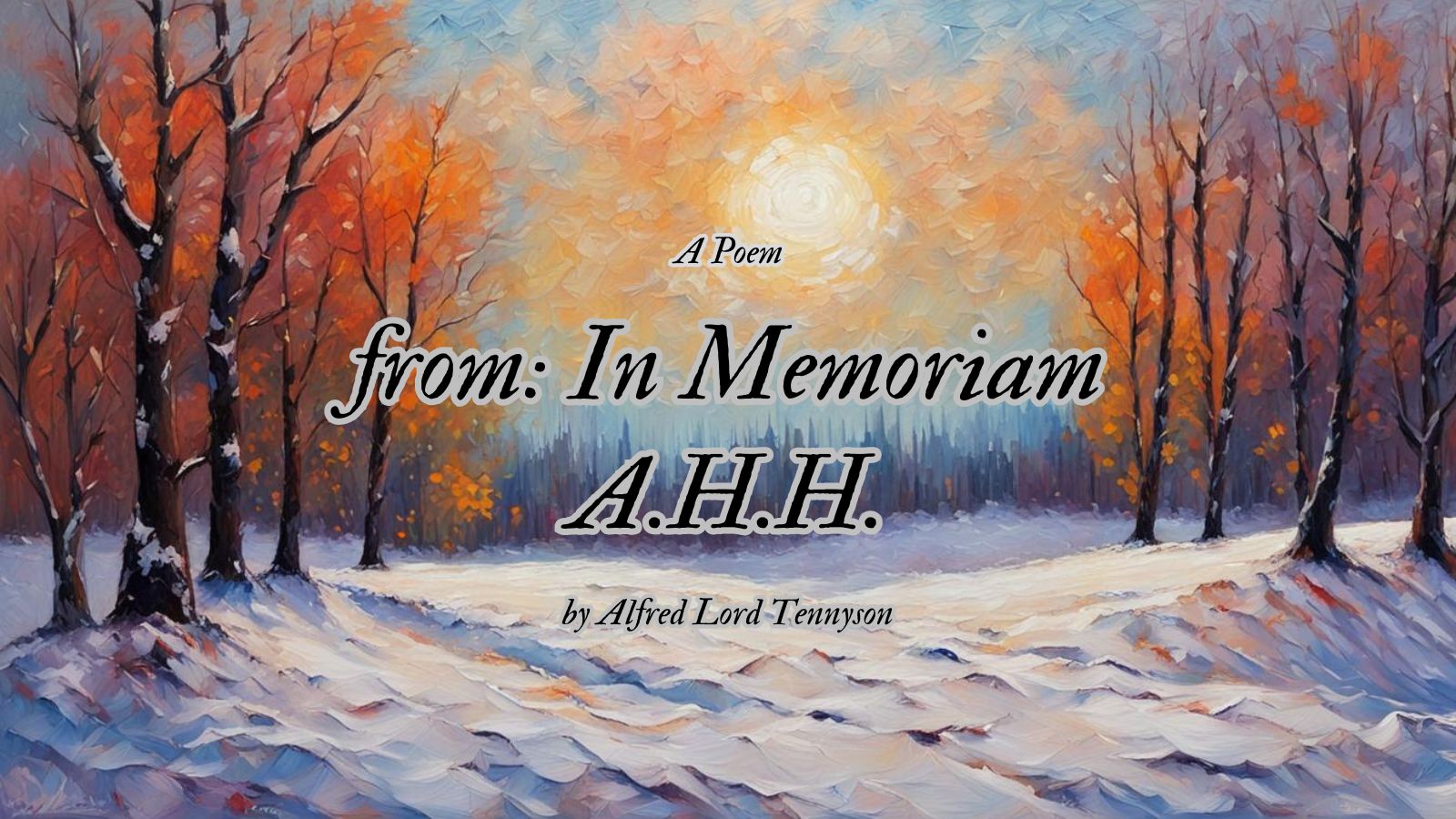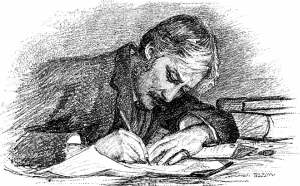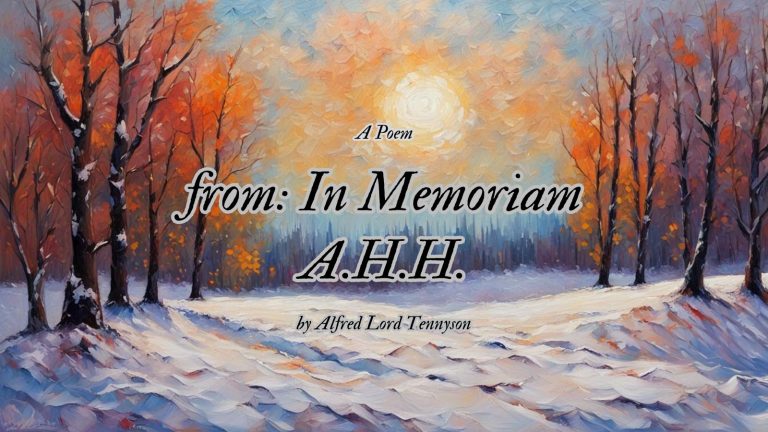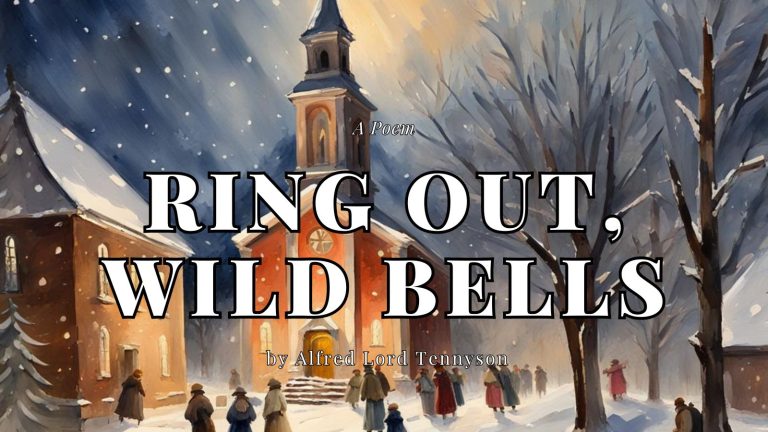The Death of the Old Year
Alfred, Lord Tennyson (1809 – 1892)
Full knee-deep lies the winter snow,
And the winter winds are wearily sighing:
Toll ye the church bell sad and slow,
And tread softly and speak low,
For the old year lies a-dying.
Old year you must not die;
You came to us so readily,
You lived with us so steadily,
Old year, you shall not die.
He lieth still: he doth not move:
He will not see the dawn of day.
He hath no other life above.
He gave me a friend and a true truelove
And the New-year will take ’em away.
Old year you must not go;
So long you have been with us,
Such joy as you have seen with us,
Old year, you shall not go.
He froth’d his bumpers to the brim;
A jollier year we shall not see.
But tho’ his eyes are waxing dim,
And tho’ his foes speak ill of him,
He was a friend to me.
Old year, you shall not die;
We did so laugh and cry with you,
I’ve half a mind to die with you,
Old year, if you must die.
He was full of joke and jest,
But all his merry quips are o’er.
To see him die across the waste
His son and heir doth ride post-haste,
But he’ll be dead before.
Every one for his own.
The night is starry and cold, my friend,
And the New-year blithe and bold, my friend,
Comes up to take his own.
How hard he breathes! over the snow
I heard just now the crowing cock.
The shadows flicker to and fro:
The cricket chirps: the light burns low:
’Tis nearly twelve o’clock.
Shake hands, before you die.
Old year, we’ll dearly rue for you:
What is it we can do for you?
Speak out before you die.
His face is growing sharp and thin.
Alack! our friend is gone,
Close up his eyes: tie up his chin:
Step from the corpse, and let him in
That standeth there alone,
And waiteth at the door.
There’s a new foot on the floor, my friend,
And a new face at the door, my friend,
A new face at the door.
Alfred Lord Tennyson is considered one of the greatest English poets of the Victorian era. He was born in 1809 in England. His early poems were largely influenced by the times—his famous poem “The Lady of Shalott” is set in King Arthur’s Camelot, showing his early interest in medieval themes. Tennyson continued writing and expanding his catalog of poems. In 1850, he was appointed the Poet Laureate of Great Britain and Ireland. Two years later, upon the death of William Wordsworth, Tennyson officially assumed the role of Poet Laureate. Some of his most famous poems are ‘In Memoriam’, ‘Idylls of the King’, and ‘Tithonus’. While Tennyson garnered fame and accolades in his home country, his reputation eventually spread across the globe. Much of his poetry focused on grief, loss, doubt, and faith. Despite periods of deep sadness, Tennyson maintained an unwavering faith throughout his life. His poems explore complex themes in mystical ways, allowing readers to uncover new interpretations with each reading. Though he passed in 1892, Tennyson’s works continue to inspire and connect deeply with readers over 150 years later.
